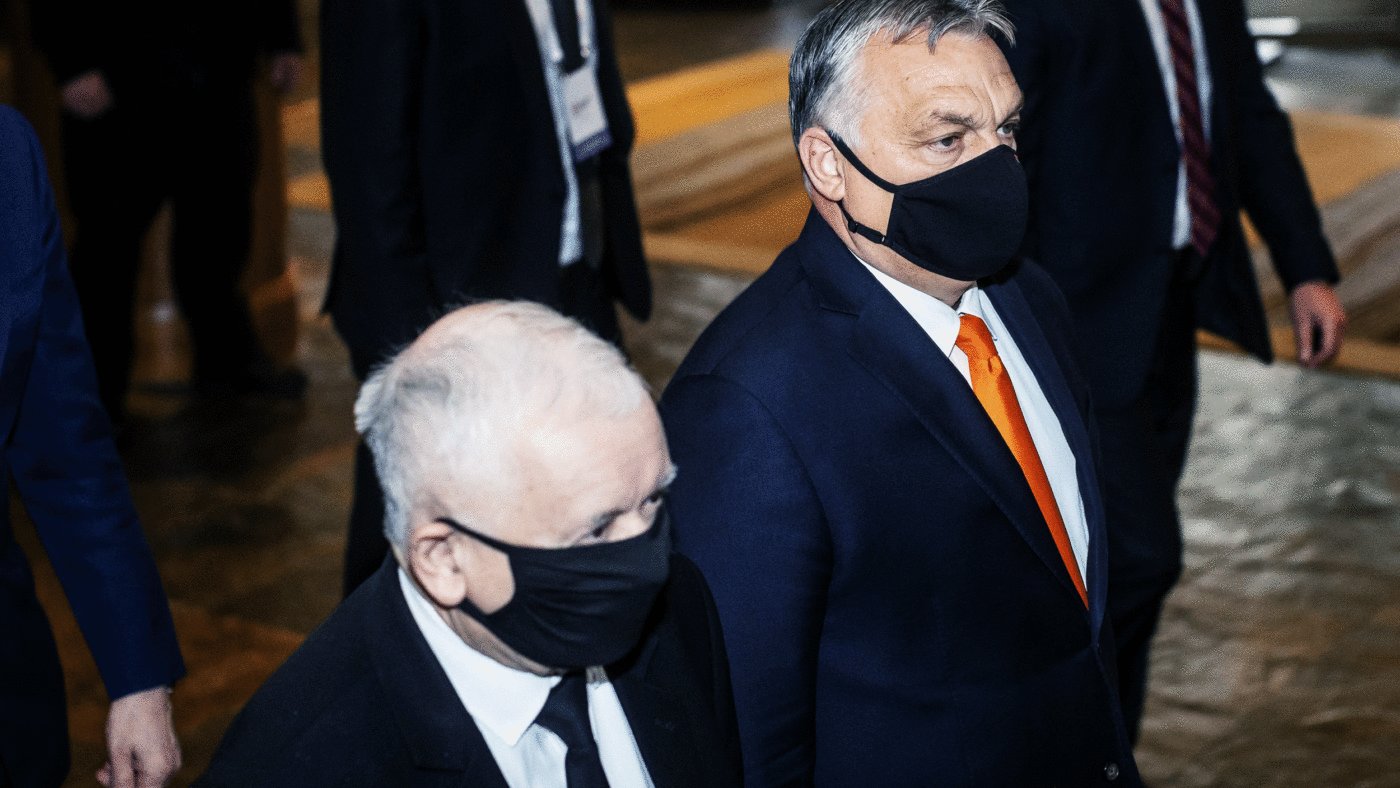The European right remains divided. A meeting in Warsaw this weekend between the leaders of some of the EU’s largest conservative parties failed to produce a much-anticipated new grouping in the European Parliament, meaning eurosceptic voices in Brussels will continue to be drowned out by those bent on closer EU integration.
With ideological rifts opening up this year between the EU’s progressive and conservative members, the lack of a strong platform for eurosceptic voices in the European Parliament has become a major issue. The departure of Hungarian leader Viktor Orbán’s Fidesz party from the European People’s Party in March confirmed a growing sense of homelessness for those worried about the EU’s drive to impose common cultural and legal standards on member states.
The problem is exacerbated by a situation in which many progressive MEPs appear to see themselves as the guardians of ‘EU values’, lending backbone to a Commission prone to compromise and prevarication when it comes to conservative challenges from rebellious member states. Right-wing opposition to this sense of moral crusade is fragmentary and half-hearted: Poland’s ruling Law and Justice (PiS) party, whose scepticism about the authority of EU courts has provoked a major crisis for the EU, continues to throw its lot in with less outspoken parties in the European Conservatives and Reformists group, avoiding association with more controversial forces further to the right.
In this context, it’s hardly surprising that progressive MEPs tend to dismiss euroscepticism as an evil to be fought rather than an issue to be debated. The current make-up of the European Parliament means scepticism about EU integration is found either watered down, or expressed by politically isolated figures who are easy to dismiss. This makes it far easier for anti-EU sentiment to be seen as an aberration to be dealt with at the national level, rather than a conundrum facing the bloc as a whole.
Right-wing party leaders who gathered in Warsaw on Saturday, including Orbán, PiS leader Jaroslaw Kaczyński, French National Rally leader Marine Le Pen and others, have long expressed a desire to change this situation. But beyond indignant verbiage criticising an EU devoted to ‘social engineering… designed to detach a human being from their culture and heritage,’ they were again unable to put differences aside for the sake of any tangible outcome.
Critics suggest the difficulty in forming a new parliamentary group arises from a contradiction inherent in any transnational grouping of nationalist forces. Indeed, the EU’s right-wing parties have long been divided on key issues such as the proper European stance towards Russia and the best way to deal with mass migration.
In recent months the landscape has changed, though – largely in response to a more determined and confrontational EU stance against perceived rule of law violations in Hungary and Poland. The burgeoning political alliance between Poland’s ruling conservative force and Le Pen’s National Rally, for example, would until recently have seemed unimaginable due to the French firebrand’s cordial relations with Vladimir Putin.
Still, the failure to agree on a formal partnership, with Italian Lega party leader Matteo Salvini choosing to pull out of the Warsaw conference, should now be cause for concern not just for the European right, but for the EU as a whole.
Recent acrimonious disputes between Brussels and conservative regimes in Poland and Hungary have shown the negative effect of a dearth of debate on matters of cultural identity and national sovereignty in the EU. The collapsing of the European centre has been epitomised by the departure of Angela Merkel as German Chancellor: in a letter posted on his website on Monday, Orbán warned that Hungary is now preparing ‘for battle with our eyes wide open’ against the new German regime’s ‘pro-immigration, gender-friendly, federalist programme’.
Indeed, some in the European Parliament seem to welcome the drift towards extremes – perhaps hoping that punishment and recrimination will finally encourage rebellious member states to mend their ways. But treating euroscepticism as a purely domestic ill is a dangerous game to play. Indeed, one wonders how MEPs with misty-eyed visions of ‘EU values’ can be so blasé about the possibility of stoking even greater levels of resentment in Poland and Hungary, two of the bloc’s major economic beneficiaries, through the possible withholding of EU funds.
It is possible that many progressive MEPs would view an EU which bends to the demands of leaders such as Orbán and Kaczyński as being no longer ‘their EU’. Yet such conceptions only reveal the other side of the coin of the conflict between the national and the transnational pointed out by critics of the proposed right-wing alliance. Any unified sense of EU purpose must, to some extent, be anti-national; this makes it easy to maintain against a nationalist such as Orbán, but liable to crumble at the first serious challenge on any issue where individual member states can each claim varying interests, such as migration, monetary policy or international relations.
A stronger platform for eurosceptics would hammer home the fact that rather than a passing fad fostered by demagoguery, as many progressive MEPs suppose, euroscepticism is in fact a legitimate response to the EU’s integrationist impulse; a response demanding serious thought throughout the bloc. The establishment of such a platform would encourage greater debate about the EU’s current trajectory; a debate which the EU sorely needs to stop growing ideological tensions tearing it apart at the seams.
Click here to subscribe to our daily briefing – the best pieces from CapX and across the web.
CapX depends on the generosity of its readers. If you value what we do, please consider making a donation.


